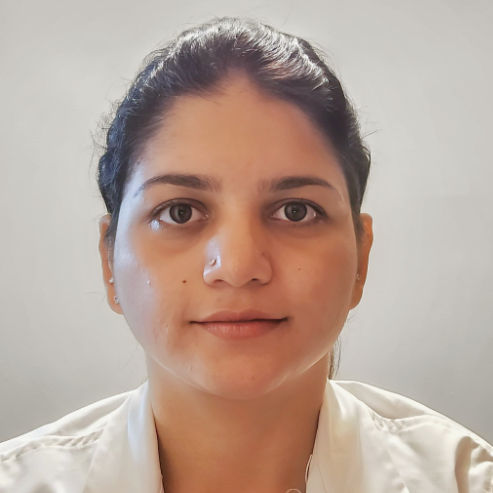Understanding PCOD in Females: Causes and Symptoms
Understand PCOD in females, including its common causes, key symptoms, and how early diagnosis can help manage hormonal imbalances effectively.

Written by Dr. J T Hema Pratima
Reviewed by Dr. Dhankecha Mayank Dineshbhai MBBS
Last updated on 13th Jan, 2026

Introduction
Polycystic Ovary Disorder (PCOD) is a common hormonal condition affecting many women of reproductive age. If you or someone you know has been diagnosed with PCOD, it’s natural to have questions and concerns. This article aims to simplify what PCOD is, its causes, symptoms, and how you can manage it effectively.
What is PCOD?
PCOD, or Polycystic Ovary Disorder, is a hormonal imbalance where the ovaries produce higher-than-normal levels of male hormones (androgens). This can lead to irregular menstrual cycles, cysts in the ovaries, and difficulties with fertility. While the exact cause is not fully understood, genetics and lifestyle factors play a significant role.
Common Symptoms of PCOD
Every woman experiences PCOD differently, but some common symptoms include:
1. Irregular Periods: Missed, delayed, or very heavy periods.
2. Excess Hair Growth (Hirsutism): Thick, dark hair on the face, chest, or back.
3. Acne and Oily Skin: Due to increased androgen levels.
4. Weight Gain: Difficulty losing weight, especially around the waist.
5. Hair Thinning: Thinning hair or male-pattern baldness.
6. Darkening of Skin: Dark patches on the neck, underarms, or groin.
7. Mood Swings & Fatigue: Hormonal imbalances can cause irritability and low energy.
8. Difficulty Getting Pregnant: Irregular ovulation affects fertility.
If you notice these symptoms, it’s best to consult a doctor for proper diagnosis and treatment.
What Causes PCOD?
While the exact cause is unknown, several factors contribute to PCOD:
1. Insulin Resistance: High insulin levels increase androgen production, leading to PCOD symptoms.
2. Hormonal Imbalance: Excess androgens (male hormones) disrupt ovulation.
3. Genetics: PCOD often runs in families.
4. Lifestyle Factors: Poor diet, lack of exercise, and stress can worsen symptoms.
How Does PCOD Affect Health?
If left unmanaged, PCOD can lead to:
Type 2 Diabetes (due to insulin resistance)
High Cholesterol & Heart Disease
Sleep Apnea (breathing problems during sleep)
Endometrial Cancer (from irregular periods)
Depression & Anxiety (due to hormonal changes)
The good news is that PCOD can be managed effectively with the right lifestyle changes and medical support.
Consult Top Specialists for Personalised Tips
Tips to Manage PCOD Naturally
1. Eat a Balanced Diet
Focus on whole foods like fruits, vegetables, lean proteins, and whole grains.
Avoid sugary, processed foods to control insulin levels.
Include anti-inflammatory foods like turmeric, ginger, and omega-3-rich fish.
2. Exercise Regularly
Even 30 minutes of walking, yoga, or strength training can help regulate hormones.
Exercise improves insulin sensitivity and aids weight management.
3. Manage Stress
Practice meditation, deep breathing, or hobbies to reduce stress.
High stress worsens hormonal imbalances.
4. Get Enough Sleep
Aim for 7-8 hours of quality sleep to regulate hormones.
5. Monitor Your Health
Regular check-ups help track blood sugar, cholesterol, and hormone levels.
When to See a Doctor?
If you suspect PCOD, consult a doctor if you experience:
Irregular or absent periods for several months
Severe acne or unwanted hair growth
Difficulty conceiving
Sudden weight gain
Early diagnosis and treatment can prevent complications.
How Apollo24|7 Can Help?
If you’re struggling with PCOD symptoms, Apollo24|7 offers:
Expert consultations with gynecologists and endocrinologists
Lab tests to check hormone levels, insulin resistance, and more
Personalized treatment plans including diet and lifestyle guidance
You can easily book a consultation or schedule a test from the comfort of your home.
Conclusion
PCOD is a manageable condition with the right care. By making healthy lifestyle choices and seeking medical advice, you can reduce symptoms and improve your quality of life. Remember, you’re not alone—many women successfully manage PCOD every day.
If you have concerns about PCOD, don’t hesitate to reach out to a healthcare provider. Taking the first step towards understanding and managing your health is the most important one!
Consult Top General Physician
Consult Top Specialists for Personalised Tips

Dr. Sougata Kumar
General Practitioner
8 Years • MBBS
East Midnapore
VIVEKANANDA SEBA SADAN, East Midnapore

Dr. Swagato Podder
General Practitioner
5 Years • MBBS
Kolkata
GRD POLYCLINIC, Kolkata
Dr. Sujay P R
General Physician/ Internal Medicine Specialist
3 Years • MBBS
Bengaluru
PRESTIGE SHANTHINIKETAN - SOCIETY CLINIC, Bengaluru

Dr Bhumika Lalwani
General Surgeon
4 Years • MBBS MS
Bengaluru
PRESTIGE SHANTHINIKETAN - SOCIETY CLINIC, Bengaluru

Dr. Imtiyaz Khan
General Physician/ Internal Medicine Specialist
6 Years • MBBS
Bengaluru
Apollo Clinic, Sarjapur Road, Bengaluru
Consult Top General Physician

Dr. Sougata Kumar
General Practitioner
8 Years • MBBS
East Midnapore
VIVEKANANDA SEBA SADAN, East Midnapore

Dr. Swagato Podder
General Practitioner
5 Years • MBBS
Kolkata
GRD POLYCLINIC, Kolkata
Dr. Sujay P R
General Physician/ Internal Medicine Specialist
3 Years • MBBS
Bengaluru
PRESTIGE SHANTHINIKETAN - SOCIETY CLINIC, Bengaluru

Dr Bhumika Lalwani
General Surgeon
4 Years • MBBS MS
Bengaluru
PRESTIGE SHANTHINIKETAN - SOCIETY CLINIC, Bengaluru

Dr. Imtiyaz Khan
General Physician/ Internal Medicine Specialist
6 Years • MBBS
Bengaluru
Apollo Clinic, Sarjapur Road, Bengaluru


.webp)

